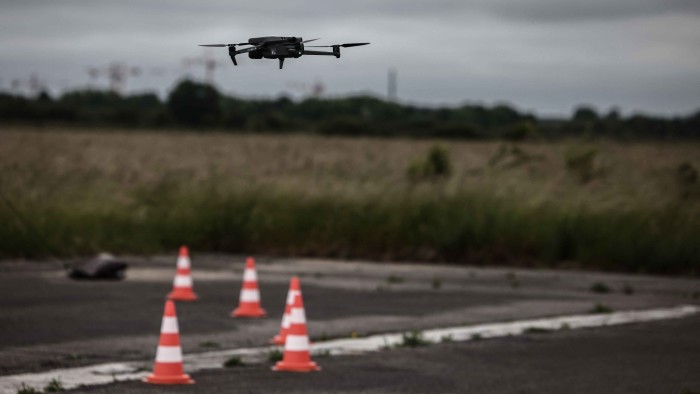Unlock the White House Watch newsletter for free
Your guide to what Trump’s second term means for Washington, business and the world
The US commerce department has launched two national security probes that could lead to tariffs on drones and a raw material used for chips and solar panels.
In notices published on Monday evening, the commerce department said it would examine imports of unmanned aircraft systems and their parts and components, and would separately carry out a study of polysilicon supply chains.
US officials would study the impact of foreign subsidies, “predatory trade practices” and the potential for foreign countries to use export controls to “weaponize their control over supplies” of both polysilicon and drone parts, the notices said.
The investigations are the latest salvo in President Donald Trump’s trade war and add to a suite of ongoing probes that could lead to tariffs on critical sectors and industries.
Trump has used the same legal authority — Section 232 of the Trade Expansion Act — to apply tariffs of 50 per cent on steel and aluminium imports, as well as a 25 per cent levy on cars and car parts imported into the US.
Last week, Trump announced he would apply tariffs of 50 per cent on imports of copper beginning on August 1 after the conclusion of another Section 232 investigation.
His administration also has ongoing investigations into trade in pharmaceuticals, lumber, aerospace parts, chips and consumer electronics, all of which could lead to tariffs on a range of imports.
The widespread use of sectoral tariffs has ratcheted up trade tensions with US trading partners and allies, many of whom have been locked in months-long negotiations with Trump administration officials over the president’s impending “reciprocal” tariffs.
Major trading partners such as the EU, Japan and Canada have also sought relief from the sweeping sectoral tariffs, but have been unable to secure a reprieve from Trump.
The probes will add to the uncertainty over potential future US tariffs that could be applied on imports from allies and trading partners.
China dominates the manufacturing of polysilicon and other solar-related technologies, as well as commercial drones.
Analytics provider Drone Industry Insights found China made 70-80 per cent of the world’s commercial drones and dominated production of critical elements.
Under former president Joe Biden, the US had already increased tariffs on solar wafers and polysilicon imported from China to 50 per cent. Those tariffs took effect at the beginning of this year.


